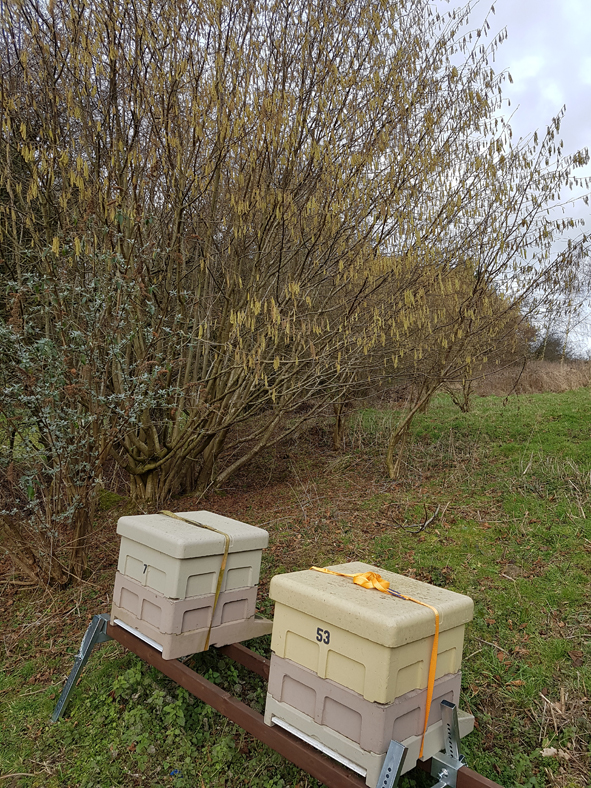B
Beefriendly
Guest
If you wnat to feed pollen in Spring trap it the previous year. However no one here seems to do it,
You are fortunate or haven't examined your local micro-climates closely.
For example the apiary in my back garden has been struggling for pollen, hazel catkins nearby but not ripe and no pollen when shook and bees are flying but returning with no pollen, so have been feeding supplement which they are taking well
My nearest out Apiary is literally less than 1/2 a mile a way in a more sheltered valley. The catkins here are ripe and releasing pollen. Lots of yellow pollen on the varroa board, whereas non at home. These girls do not need any supplement (assuming the weather stays fine). Of course this can change and you need to adapt to circumstances that are current in YOUR apiary.
When I teach people I never tell them do this, do that....etc ....I explain you need to figure out what is happening where you keep your bees and act accordingly. Not take well meaning generic advice given by people, 100's of miles away.
I remember one wet summer not that many years ago being told very strongly by a local beekeeper that he never ever had to feed his bees in summer and there was no need...mine where dry, no nectar so I (guiltily) disobeyed his advice and fed...they all survived. He lost 25/30 colonies. A few years later he told me had learnt a hard salutatory lesson...
These hazel catkins are dripping pollen...




















































 mate ,
mate ,  having a dis at Amm!!!
having a dis at Amm!!!